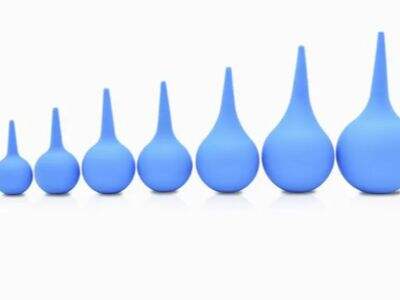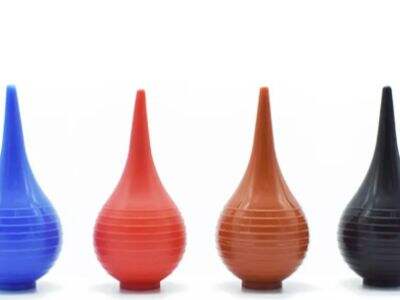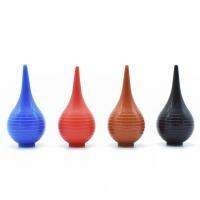Five Things You Need To Know About Syringing Your Ears
There are a lot of devices and approaches to caring for our ears. An ear syringe, an ear cleaner bulb, is one of the popular tool people use during this process. There is so much misinformation about how to use ear syringes to remove ear wax, so in this post, we are going to bust some popular myths about ear syringe ear wax removal and give you some important information about ear syringes including their efficacy, when they should and should not be used, the risks and the alternatives
Ear Syringes, The Truth Share Tweet Pin Share There’s more to it when it comes to ear syringes than just this
Use ear syringe or ear cleaner bulb as directed to help release the wax from the ear. These bulbous contraptions are meant to gently squirt water inside the ear in an effort to dislodge ear wax that you can feel accumulating. Ear syringes work in some instances but should be used correctly to prevent damage to ear. Warm water is best, and don’t use too much pressure during ear syringing

Common Myths of Ear Cleaning Bulbs
Being one of the most popular methods of earwax removal, there are a few myths about ear syringes that we have to clear up. Myth: It’s always safe and effective to remove ear wax with an ear syringe. Actually perform an ear syringing in the wrong manner can result to some other minor or major complications such as ear infection, perforated eardrum or ear wax impaction. It is recommended to get medical advice prior to use of an ear syringe, to ensure that doing so is safe and beneficial in your particular circumstances
Why ear syringing is not always the best method for ear wax removal
Ear syringes Some people are successful in using an Ear syringe for ear wax removal. An ear syringe may not be advisable in certain conditions, for example if you have a previous or perforated eardrum, or have undergone recent ear surgery. In these cases, other ways out of ear wax removal may be a better fit. Please take into consideration your own situation and consult a professional about use of an ear syringe
An awareness of the Risk and limitations of ear syringing
There are some risks and limitations in terms of ear syringing to remove ear wax. Improper or excessively forceful use of an ear syringe can cause damage to the delicate inner ear structures, including the eardrum. Next, if you have a health history of ear health problems or you aren’t genuinely sure exactly what the cause is of your ear symptoms, using an ear syringe may not be proper. It is advised to be cautious and discuss with a medical professional before you try an ear syringe

Safe and effective methods of ear cleaning other than ear syringing
Safe, effective alternatives to ear syringes for ear cleansing If you’re looking for safe and effective alternatives to ear syringes for removing wax, here are a few to consider. One method is by applying over-the-counter ear drops, which soften ear wax, after which the ear is gently flushed with warm water. A second choice would be to see a health care provider who can remove the ear wax safely with instruments and techniques. You need to find the method that fits best in your individual case and consult with a health care provider about possible concerns
I’ve had some patients accidentally “suck” on the syringe, thinking the idea is to create the most pressure possible in the ear canal. Although ear syringing can be a helpful technique for ear wax removal, it must be done appropriately and carefully to prevent ear injury. By being aware of the risks, limitations and alternatives of ear syringing, you can decide for yourself what’s the best way to look after your ears. Always remember to take care of your ears first and consult with your doctor if you are at all unsure
Table of Contents
- Five Things You Need To Know About Syringing Your Ears
- Ear Syringes, The Truth Share Tweet Pin Share There’s more to it when it comes to ear syringes than just this
- Common Myths of Ear Cleaning Bulbs
- Why ear syringing is not always the best method for ear wax removal
- An awareness of the Risk and limitations of ear syringing
- Safe and effective methods of ear cleaning other than ear syringing

 AR
AR
 BG
BG
 DA
DA
 NL
NL
 FI
FI
 FR
FR
 DE
DE
 EL
EL
 HI
HI
 IT
IT
 JA
JA
 KO
KO
 NO
NO
 PL
PL
 PT
PT
 RO
RO
 RU
RU
 ES
ES
 SV
SV
 CA
CA
 TL
TL
 IW
IW
 ID
ID
 SL
SL
 VI
VI
 SQ
SQ
 ET
ET
 GL
GL
 HU
HU
 TH
TH
 TR
TR
 GA
GA
 BE
BE
 BN
BN
 SO
SO
 HAW
HAW


